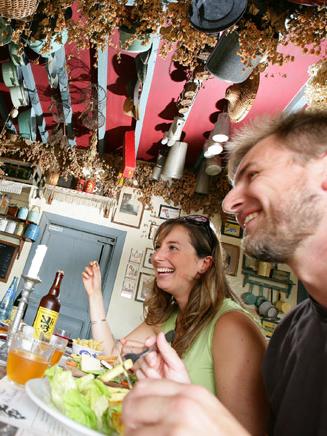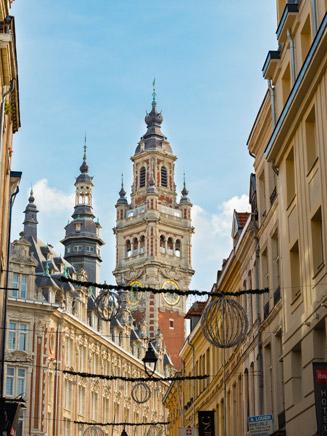Combined, these factors create a whirlwind of gustatory pleasures. Mineral salts, cereals and nutrients compose the basis; if it’s not filtered out, the yeast adds vitamin B, which is rare in other foods. And with it being so natural, it’s not unreasonable to suppose that beer might be good for the health (when consumed in moderation, of course).
Take a table at the Estaminet de Kerelshof in Cassel – a restaurant typical of Northern France – for tastings straight from the brewer and to truly immerse yourself in French art de vivre. Bierlala (named after a Cassel carnival song), for instance, is bound to inspire you to sing and to share moments of pleasure and conviviality in an authentic French setting. It’s all just a question of alchemy between a brewer, their product and those who taste it…
Round off your visit by following Lille’s beer route: a kind of beer-lovers’ treasure hunt organised by l'Echappée bière. Booklet in hand, set out to discover the city’s streets and monuments (the UNESCO-listed town-hall belfry, Vieux Lille and its Grand’Place, La Grande Braderie flea-market, the Cathédrale de la Treille, Lille Metropole Musée d’art Moderne...) while answering questions about Lille’s history and taking photographs. Stop-offs in three or four unmissable bars included on your route give you the opportunity to enjoy a blind tasting while providing you with more clues…
Au Petit Manoir in Socx near Calais is a charming B&B and table d’hôte. Host Jean Jacques, who is passionate about French cuisine, will serve you recipes based on local produce. Before setting out to discover more breweries and farm-inns, make sure to fill up on his hearty breakfast, including french baguettes, croissants and cheese.
Practical Information
Practical Information
 A sociable atmosphere and carbonade flamande (a beef stew) in a typical estaminet.
© S. Dhote Nord Tourisme
A sociable atmosphere and carbonade flamande (a beef stew) in a typical estaminet.
© S. Dhote Nord Tourisme
 Wander the narrow streets of Lille’s Old Town with its Flemish renaissance architecture.
© CRT/X.Renoux
Wander the narrow streets of Lille’s Old Town with its Flemish renaissance architecture.
© CRT/X.Renoux


